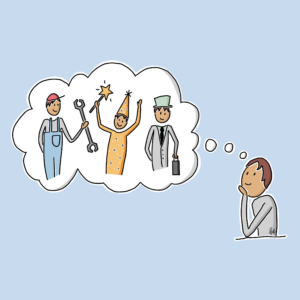

Imagine that a professor were to beam in from a late 19th century laboratory. Once he had recovered from the shock of the trip itself and the variety of new machines and instruments surrounding him, he would begin to smile and nod in recognition about the familiarity of his current surroundings. Once he strayed outside the laboratory and went for a walk, he would be amazed by how much the world outside had changed since his time.
The professor would nod with appreciation at how academic research – the training ground for scientists and engineers – still focuses on identifying and selecting for the next generation of professors. As more people enter science, the competition for these positions becomes more brutal. This leads to often to high-friction environments, where people hold back ideas or data from colleagues, where they jockey for authorship position and where failure to start one’s own group is stigmatised.
I spent 17 years in active research and R&D, and its management; I have spent the last 23 years supporting leaders in R&D face the challenges that their daily work presents them. I’ve seen how many of them question the status quo and ask whether research could be organised differently, both to meet the needs of research itself, the people conducting it, and the society within which it takes place.
This opening paragraph encapsulates the problem that R&D faces in the second decade of the 21st century. The world continues to change at a great pace, society itself is struggling to keep up, and in many ways how researchers conduct their work remains rooted in the tradition of the late 19th century. From my own experience and the perspectives and ingenious workarounds people have shared with me over the years, to keep pace with this change demands nothing less than a paradigm shift in how we conduct research and leaders new to find ways to be productive during these changes. I’ll highlight just four of these challenges that stretch the current paradigm:
- The challenge of trust. By definition, researchers operate at and beyond the edges of what we know. In the 19 and early 20 century, thanks in part to the way newspapers reported breakthroughs in science and engineering, the general public and politicians tended to trust scientists and their work. Contemporary breakthroughs either rely on finer degrees of specialisation or trigger insights that can challenge our worldview. Due to this and to how modern media regales us with stories of “Frankenfood” or poisonous vaccines and similar scare stories, the level of trust is waning. This, in turn, influences public support for research.
- The challenge of resources. The pool of public funding for research is stagnating or slowly evaporating and an increasing number of researchers is applying for funds. The is leading to much lower success rates for funding, e.g. 11.3% for ERC Starter Grants, 6% for mainstay R01 grants at the NIH’s NIAID (although the overall NIH figure is 18%), and 35.6% for the DFG (down from 47% in 2009). In industry R&D budgets are similarly coming under pressure. This external pressure for efficient use of resources is usually met be an inefficient and destructively competitive strategy, namely to give the same research question to multiple people in the hope that one will be fast enough to get the big result that helps to ensure the next grant or secure next year’s budget. While they trends point to the need for change at the systemic level, in the mean time leaders can learn to develop a leadership style that enhances cooperation and teamwork that leads to a more efficient use of resources.
- The challenge of focus. The technology that delivers easy access to knowledge and information is certainly a boon for research. The same technology also delivers an quantity and quality of information via e-mail, social networks and (mobile) phone at that overwhelms most people’s ability to find the time and space to think.
- The challenge of diversity. A (male) client recently described the old system as “white guy research” – he easily could have added “from rich countries”. Both society and the research lab are a lot more diverse than one hundred years ago. Almost all labs are now international and mixed gender. Funding agencies are now starting to demand that researchers also explore how to integrate those with physical or mental disabilities in the lab. All of this presents challenges on two levels: first, how to work together effectively. Secondly, which questions should we even be studying.
The current leadership paradigm is not up to the task of meeting all these challenges. We need to create an environment where much less energy flows into arguments around authorship and other common conflicts, and instead flows into productive research. This in turn will lead to more and better papers, better scientists, equipped with the skills for a variety of careers and, indeed, better science.
What else do you think that professor from the 19th century would either recognise or find really strange?


